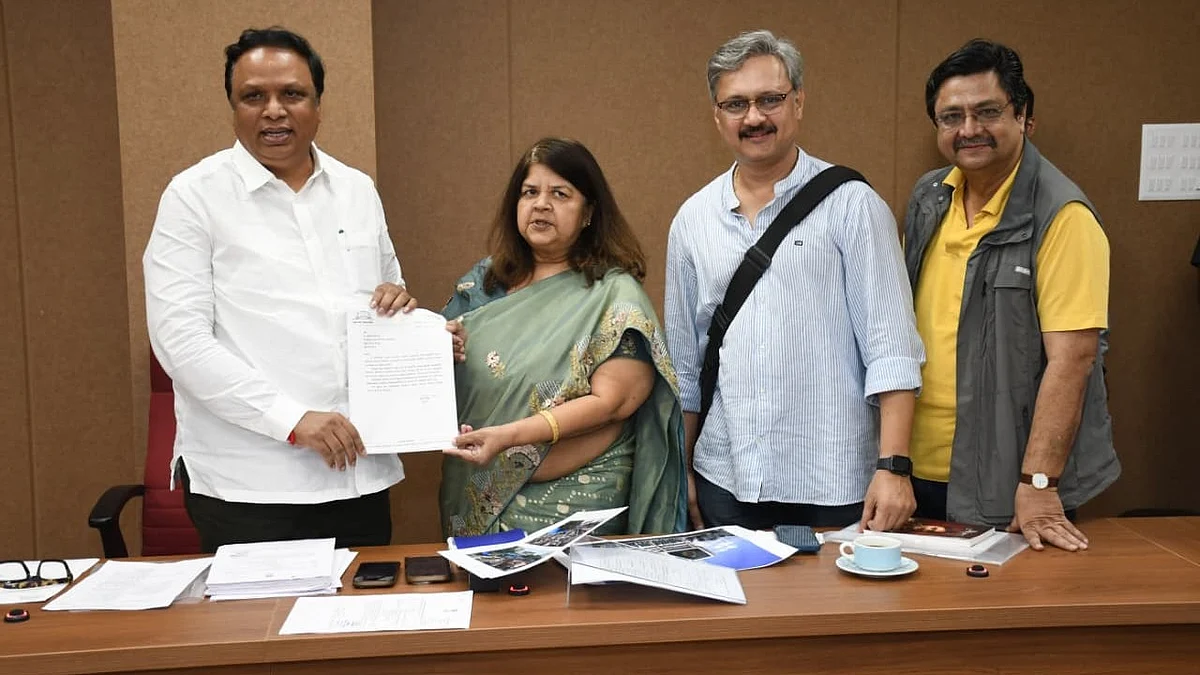In the monsoon press conference by Konkan Railway Konkan Railway Corporation Limited (KRCL) informed the monsoon timetable to be starting from June 15, a fortnight earlier than last year. The corporation said it is better prepared this time, and as a result, the special monsoon timetable will remain in effect for a shorter period—until October 20, 2025.
With the Konkan region known for its rugged terrain and intense rainfall, the Konkan Railway Corporation Limited (KRCL) has rolled out a comprehensive monsoon action plan to ensure smooth and safe train operations. The plan covers key areas such as infrastructure reinforcement, real-time monitoring, strategic patrolling, and enhanced emergency response.
KRCL has claimed to have completed extensive cleaning of catchwater drains and inspections of track cuttings throughout the route. “Ongoing geo-safety projects have significantly reduced risks like boulder falls and soil slippages,” Santosh Kumar Jha, Chairman and Managing Director (CMD) of KRCL said. The railway has not faced any major boulder-related disruptions in the last ten years, which KRCL credits to sustained geo-engineering efforts.
To ensure on-ground safety, 636 trained personnel are being deployed for 24/7 patrolling in vulnerable areas by KRCL. BRN (wagon)-mounted excavators have been strategically placed at Chiplun, Ratnagiri, Kankavali, and Verna to handle potential emergencies. Additionally, Rail Maintenance Vehicles (RMVs) are stationed at nine key points, including Veer, Ratnagiri, and Karwar, to facilitate quick response times. Tower wagons are ready at multiple locations to enable immediate repair actions, said Jha.
Train speeds will be restricted to 40 km/h during periods of low visibility due to rain. Self-Propelled Accident Relief Medical Vans (ARMVs) equipped with operation theatres are stationed at Ratnagiri and Verna. An Accident Relief Train (ART) is also ready at Verna with a mobilization time of just 15 minutes.
KRCL stated that train services will be temporarily suspended if water levels on the track rise above 100mm, and will resume only once safety is ensured.
To strengthen communication during emergencies, all field staff are equipped with mobile phones, walkie-talkies, and 25-watt VHF sets at stations. Emergency Communication (EMC) sockets have been installed at 1 km intervals to allow instant reporting. ARMVs are also equipped with satellite phones for disaster scenarios, KRCL further stated.
LED signals have been installed for better visibility in poor weather. Self-recording rain gauges are operational at nine locations, including Chiplun and Udupi, while flood warning systems have been deployed on key river bridges like Kali, Savitri, and Vashishti. Anemometers have been installed on major viaducts and bridges to monitor wind speeds.
Round-the-clock control rooms have been activated at Belapur, Ratnagiri, and Madgaon. Medical teams are stationed at Chiplun, Verna, Madgaon, Karwar, and Udupi to ensure immediate response during emergencies.
“KRCL is closely coordinating with the India Meteorological Department (IMD) for daily weather updates. Passengers can access real-time train status via www.konkanrailway.com or by calling the railway helpline number 139,” he added.










